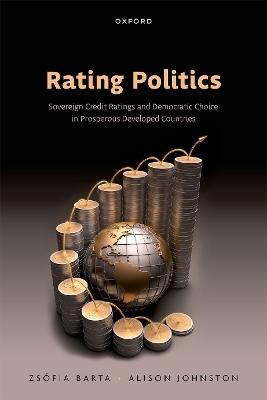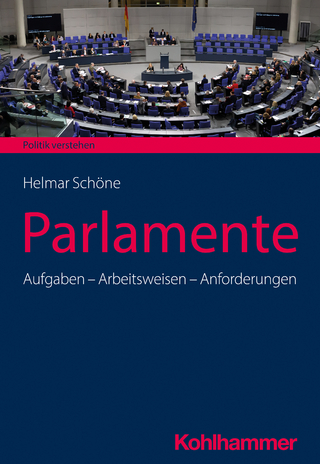
Rating Politics
Oxford University Press (Verlag)
978-0-19-887817-9 (ISBN)
How do countries' political and policy choices affect the credit ratings they receive? Sovereign ratings influence countries' cost of funding, and observers have long worried that rating agencies - these unelected, unappointed, unaccountable, for-profit organizations - can interfere with democratic sovereignty if they assign lower ratings to certain political and policy choices. The questions of whether, how, and why ratings react to policy and politics, however, remain unexplored. Rating Politics opens the black box of sovereign ratings to uncover the logic that drives rating responses to political and policy factors. Relying on statistical analysis of rating scores, interviews with sovereign rating analysts, and a close reading of the official communications of rating agencies about their decisions, Zsófia Barta and Alison Johnston show that ratings penalize center-left governments and many (though not all) policies associated with the center-left agenda. The motivation for such penalties is not rooted in assumptions about how those political and policy features affect growth and debt servicing capacity. Instead, ratings are lower in the presence of those features because they are expected to make a country more vulnerable to market panics whenever the economy is hit by unforeseen shocks, as they signal insufficient willingness and/or ability to engage in determined austerity for the sake of reassuring markets. Since market panics and the resulting "sudden stops" of funding lead to humiliating collapses of ratings, rating agencies attempt to insure themselves against "rating failures" by pre-emptively assigning lower ratings to countries with the "wrong" political and policy mix.
Zsófia Barta is Associate Professor in the Department of Political Science at the University at Albany, having previous held positions at Central European University, Harvard University, and the European University Institute. Her research focuses on the politics of public debt, covering diverse aspects of public finances from societal conflicts surrounding austerity to the influence of the markets for government debt on policy choice. Alison Johnston is Associate Professor in Public Policy and the current holder of the Ulysses G. Dubach Chair in Political Science at Oregon State University. Her research lies at the intersection of international and comparative political economy, with a focus on the political economy of comparative capitalism and European monetary integration, growth models, housing markets and household debt, sovereign credit ratings, and general strikes. She is currently the lead editor of the Review of International Political Economy.
Acknowledgments
List of figures
Abbreviations
1: The puzzle: How do sovereign ratings react to politics and policy?
2: The business: Why do ratings incorporate politics and policy?
3: The score: How do rating correlate with politics and policy?
4: The frame: How do rating analysts rationalize their approach to politics and policy?
5: The narrative: How rating reports explain specific rating decisions in Denmark, Germany, Italy, and the United Kingdom
6: The upshot: Ratings as a neglected force in global governance
Bibliography
Index
| Erscheinungsdatum | 17.05.2023 |
|---|---|
| Verlagsort | Oxford |
| Sprache | englisch |
| Maße | 162 x 240 mm |
| Gewicht | 472 g |
| Themenwelt | Sozialwissenschaften ► Politik / Verwaltung ► Politische Theorie |
| Wirtschaft ► Volkswirtschaftslehre ► Finanzwissenschaft | |
| Wirtschaft ► Volkswirtschaftslehre ► Makroökonomie | |
| Wirtschaft ► Volkswirtschaftslehre ► Wirtschaftspolitik | |
| ISBN-10 | 0-19-887817-6 / 0198878176 |
| ISBN-13 | 978-0-19-887817-9 / 9780198878179 |
| Zustand | Neuware |
| Haben Sie eine Frage zum Produkt? |
aus dem Bereich


